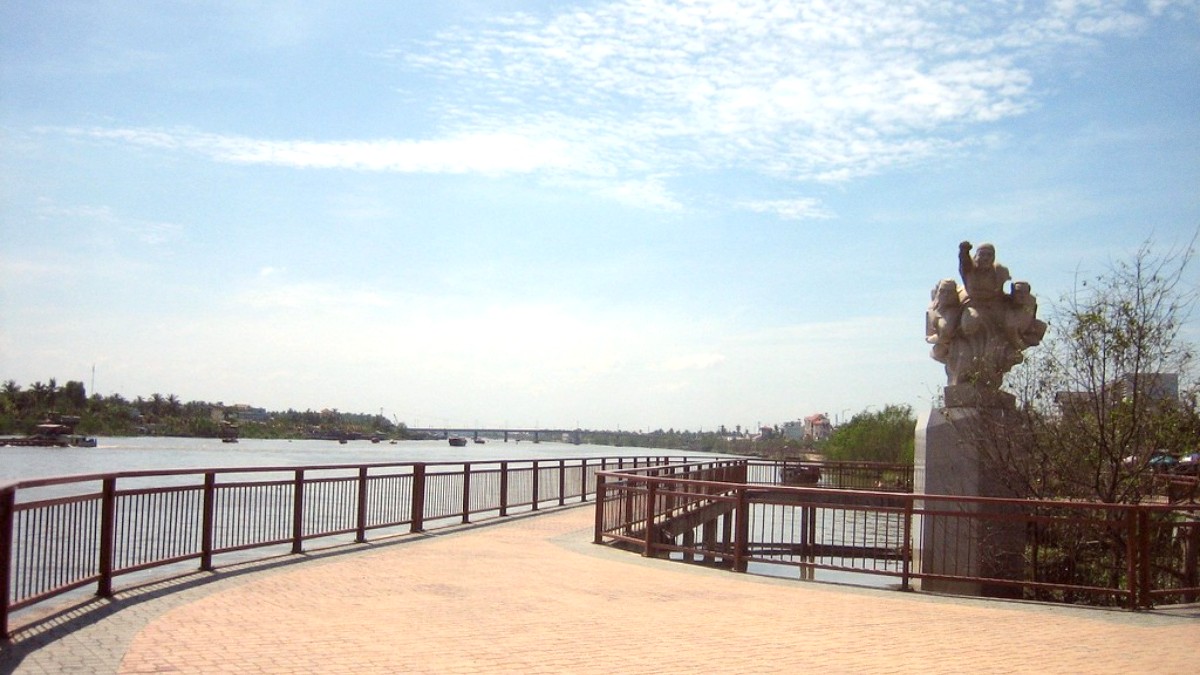
Mekong Delta, Vietnam
Vam Ho Bird Sanctuary within Ben Tre safeguards bird habitats, a protected area important for local biodiversity.
Efforts proceed to conserve and restore mangrove forests along Ben Tre's coastal areas. These forests protect against erosion and support biodiversity.
Waste management infrastructure in Ben Tre develops. Formal recycling programs are not widespread, though informal waste pickers collect recyclable materials.
Your choices around waste and water impact the local environment.
Waste management in Ben Tre, especially in rural areas, can be basic. Formal recycling programs are not widespread.
The Mekong Delta faces challenges from climate change, especially salinity intrusion, affecting freshwater availability.
Consider supporting airlines or travel agencies offering carbon offset programs for flights. In Ben Tre, local transport like bicycles or walking reduces carbon impact.
Your purchasing decisions can further support environmental responsibility.
Support traditional crafts by purchasing directly from local artisans. Your purchase safeguards their skills and livelihoods.
Homestays meaningfully share local customs and traditions with visitors, fostering cross-cultural understanding.
Your actions contribute to Ben Tre's environmental health. Every small choice towards sustainability matters.
Your interactions shape the local cultural experience.
Homestays significantly share local customs with visitors, fostering cross-cultural understanding. This helps maintain traditional ways.
Bargain respectfully in markets. It is part of the culture, but do so with a friendly demeanor and avoid undervaluing goods.
Dress modestly (shoulders and knees covered). Remove shoes before entering. Speak quietly and do not disrupt worshippers.
Be mindful of privacy, especially for children. Avoid taking photos of children without their parents' permission. Do not intrude on private moments or religious ceremonies with your camera.
Your spending choices directly benefit the local economy. Make choices that benefit the community.
Choosing homestays and hiring local guides directly benefits local families and keeps money within the community.
Prioritize purchasing goods directly from local artisans or small family-run shops rather than larger, mass-produced souvenir outlets.
Eat at local eateries and street food stalls. Use local transportation. Buy fresh produce and goods from local markets.
Make choices that genuinely support the community and promote positive interactions during your visit.
Your spending choices directly benefit the local economy.
Choosing homestays and hiring local guides directly benefits local families, keeping money within the community. These initiatives distribute tourism benefits more equitably.
Eat at local eateries and street food stalls. Use local transportation (motorbike taxis, bicycles, local buses). Buy fresh produce and goods from local markets.
Be cautious of any operations that appear to exploit animals. Research ethical animal tourism. Avoid giving money directly to begging children.
If you wish to donate, do so through established local NGOs or community projects that focus on education, health, or environmental protection.
By embracing sustainable and responsible travel practices, you contribute to Ben Tre's well-being, fostering a positive relationship between visitors and the local community, and helping to preserve this beautiful corner of Vietnam.
Support local livelihoods and ensure tourism benefits are shared fairly.
Engage mindfully with local customs and traditions.
Minimize your ecological footprint and support conservation.
Be aware of harmful practices. Prioritize ethical choices that genuinely support the community and its environment.
Embracing these responsible travel practices fosters positive relationships and preserves this beautiful corner of Vietnam for future generations.